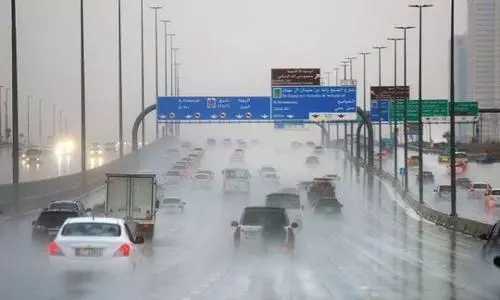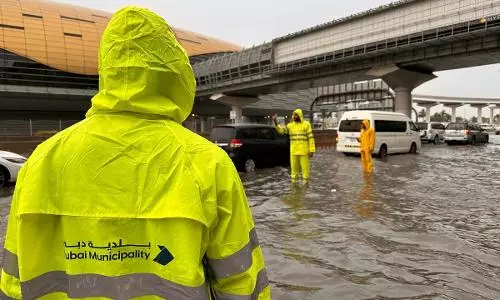
Countering the heat waves
text_fieldsIt was precisely two years ago that the state government contemplated having artificial rain to face the then extreme summer and drought. At an assembly session on 7 March 2017, chief minister Pinarayi Vijayan put forward this idea. Such a discussion was necessitatedby the absence of an alternative until the monson, in the background of insufficient rains in the previous year, and absence of summer rain.
During the months of March and April 2016 the highest temperature in history was recorded. The government may have had the apprehension that this would also repeat in 2017. But with experts ruling out the possibility of such an eventuality, that discourse did not proceed further. And that year, Kerala plunged into its worst drought disaster. And in the following year, what the state witnessed was the worst flood in recent history. Before the state has recovered from that spell of suffering, now we are faced with another spell of summer winds. These phenomena in Malabar region, with relatively strong heat waves have to be seen as a continuation of the climatic phenomena observed in different parts of India last year.
As per meteorological experts, when temperature remains 5 degrees Celsius higher than average levels for five consecutive days, that is to be treated as a heat wave. It is in the context of Kozhikode and Palakkad experiencing such heat and humid atmosphere that IMD (India Meteorological Department) gave a warning of possible heat waves. Similar heat waves had struck heavily in Telangana and Rajasthan last year, which caused over 400 deaths. Statistics tell us also that in the last 10 years, over 8,000 died all over the country due to heat wave. And this is the natural phenomenon causing the largest number of deaths in the country too. Even then, it has not found a place in the government's list of natural disasters. In other words, no step has been taken from the side of the government to tackle the unusual fluctuations experienced over the last decade, as a reflection of global warming and climate change. Beyond the warnings given by meteorological research centres from time to time and health advisories in line with them, an action plan to face changing climate is yet to be evolved.
One of the main factors in climate formation is temperature level. Climate changes caused by unexpected and unusual fluctuations in temperature levels, will lead to calamaties of far-reaching consequences. These changes are now visible in the oceans and waves. The sight of extra-ordinary rise in sea level and certain patches of land entirely being engulfed, and phenomena like El Nino are in front of us. Studies have come out proving that the current heat waves are nothing but off-shoots of these phenomena. The biggest defence against such behaviour is to get used to new habits and practices in tune with the so changing climate. But the most important among them is to put a brake on human intervention, if human hands are the reason behind such changes. Another related need is a radical change in the life-style followed for long. We have to accept the fact that Kerala has moved from its temperate weather to extreme climatic conditions. And in line with this change, even our timings for education and employment sectors also need to be adjusted. We can copy the models of extremely cold and hot countries in this. It will not be enough to re-schedule the work hours in workplaces vulnerable to sun-strokes in the current circumstances. Such changes in timings may have to be applied in other sectors too. There needs to be a revamping of the disease-prevention measures in the health sector too. Chicken pox is spreading in our state, and reports tell us of some deaths. This points to the need for new disease-prevention action in the changed situation. But that change is essential in all spheres of life. Only through such a new 'calendar' can be survive the extra-ordinary climatic phenomena.























